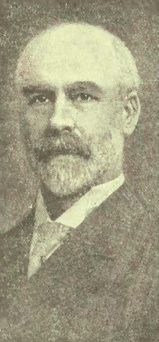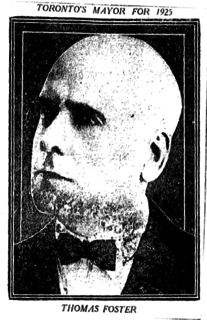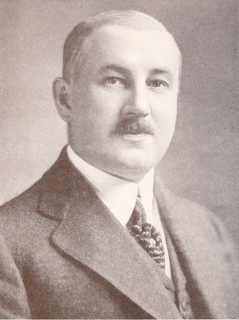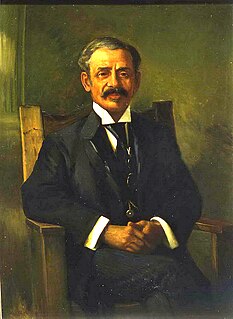
William Peyton Hubbard, a City of Toronto alderman from 1894 to 1914, was a popular and influential politician, nicknamed Cicero for his oratory; he was the first politician of African descent elected to office in Canada.
Municipal elections were held in Toronto, Ontario, Canada, on December 7, 1953. Incumbent mayor Allan Lamport won an unexpectedly close race against school board trustee Arthur Young. This election was the first for councils in the municipality of Metropolitan Toronto which would be created on January 1, 1954 and was composed of 14 municipalities: the City of Toronto, the towns of New Toronto, Mimico, Weston and Leaside; the villages of Long Branch, Swansea and Forest Hill, and the townships of Etobicoke, York, North York, East York, and Scarborough.
Municipal elections were held in Toronto, Ontario, Canada, on January 1, 1948. Robert Hood Saunders was re-elected as mayor in an election that also saw no changes on the Board of Control or City Council.
Municipal elections were held in Toronto, Ontario, Canada, on January 1, 1946. Incumbent Robert Hood Saunders was acclaimed as mayor.
Municipal elections were held in Toronto, Ontario, Canada, on January 1, 1945. Controller Robert Hood Saunders defeated incumbent Frederick J. Conboy to be elected mayor.
Municipal elections were held in Toronto, Ontario, Canada, on January 1, 1942. Incumbent Frederick J. Conboy was acclaimed as mayor.
Municipal elections were held in Toronto, Ontario, Canada, on January 1, 1941. Frederick J. Conboy was elected mayor.
Municipal elections were held in Toronto, Ontario, Canada, on January 2, 1939. Incumbent Ralph Day was re-elected mayor over former lawyer Lewis Duncan.
Municipal elections were held in Toronto, Ontario, Canada, on January 1, 1931. William James Stewart was elected mayor after winning a close contest again former mayor Sam McBride.
Municipal elections were held in Toronto, Ontario, Canada, on January 1, 1929. Sam McBride, who had been elected the year previous, was reelected mayor defeating former Alderman Brook Sykes by a large margin.
Municipal elections were held in Toronto, Ontario, Canada, on January 1, 1927. Thomas Foster was running for his third consecutive term as mayor and won a narrow victory over Sam McBride. There were two referendums as part of the vote. Toronto voters voted in favour of adopting daylight saving time for the city. They also voted in favour of spending money to create an ornate gate at the entrance to the Exhibition Place, which became the Princes' Gates.
Municipal elections were held in Toronto, Ontario, Canada, on January 1, 1926. Thomas Foster was reelected mayor.
Municipal elections were held in Toronto, Ontario, Canada, on January 1, 1917. Mayor Tommy Church was acclaimed to his third consecutive term in office.
Municipal elections were held in Toronto, Ontario, Canada, on January 1, 1915. Tommy Church was elected mayor defeating Jesse O. McCarthy.
Municipal elections were held in Toronto, Ontario, Canada, on January 1, 1914. H.C. Hocken was reelected mayor defeating Fred McBrien. The election was also notable for the victory of Louis Singer, the first representative of Toronto's large Jewish community elected to city council.
Municipal elections were held in Toronto, Ontario, Canada, on January 1, 1913. H.C. Hocken was elected to his first full term as mayor.
Municipal elections were held in Toronto, Ontario, Canada, on January 2, 1911. Mayor George Reginald Geary was easily reelected mayor.
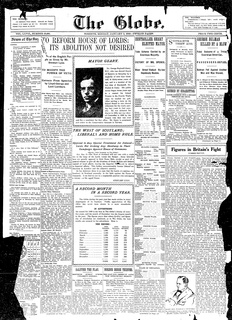
Municipal elections were held in Toronto, Ontario, Canada, on 1 January 1910. George Reginald Geary was elected to his first term as mayor. Two plebiscites were passed:
- To build a tube and surface subway transit system;
- Election of Board of Education by wards.
Municipal elections were held in Toronto, Ontario, Canada, on January 1, 1909. Joseph Oliver was easily re-elected to his second term as mayor. One of the central issues of the campaign was whether the city should construct a bridge over the Don River connecting to Danforth Avenue. A referendum was held as part of the vote, and the bridge was approved. It would be built as the Prince Edward Viaduct.


